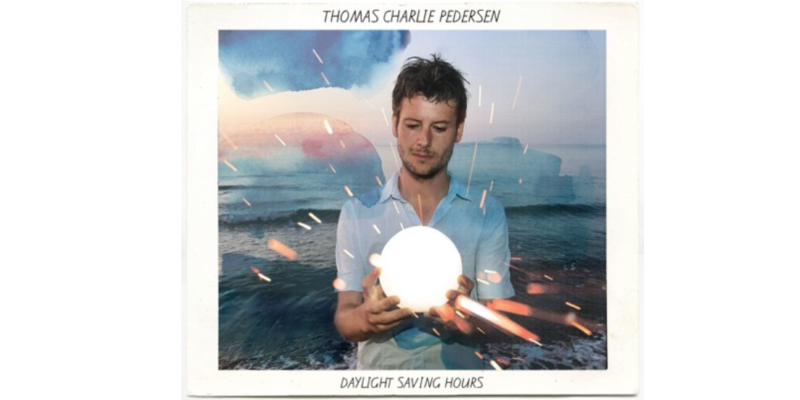We kick off with a slightly off-kilter two-minute (largely) piano and vocal piece called To A First Love. Pedersen’s voice is an earnest instrument, soaked in authenticity, which quickens into fast vibrato when being pushed out. The piano marks out time until a see-sawing mellotron woozily adds more rhythms and warmth, harking back to a Strawberry Fields Forever vibe. It’s traditional, low-key and sets the tone for what’s to follow.
The Meriwether Pull is up next. It launches straight in with acoustic guitar and vocals, giving the listener a narrative to follow from the off. The Beatles rear their heads again, in terms of harmonic backing vocals and chord progression, with organ adding colour.
As with any review, I find myself reaching for artist comparisons. It’s tricky. It kind of reminds me of a lo-fi Electric Soft Parade, but not led from the drum kit. Also, I thought of Steve Adey, and his homespun productions – though the comparison is mainly because of Pedersen’s vibrato. For similar reasons, there’s a close link to the edgier vocals of Aviv Geffen.
Movables features a more robust vocal delivery, as if a new seriousness has imbued the take. There are some lovely, tasteful backing vocals fleshing out some tasty chord changes. These progressions aren’t going where I expect them to. Nor do they change where I expect them to change. Some programmed strings arrive to add depth and warmth.
We’re back to more vulnerable vocals on Green Plateau. The vocal sticks close to the piano part and backing vocals again play a significant, welcomed supporting role. The rhythms of vocal delivery and the opportunities of snatching breaths are again unusual, as are some of the pronunciations of words so they fit the scansion. It’s slightly quirky, but not in the least unwelcome; possibly the product of a Danish accent.
Acoustic picking leads us through the thoughtful, wistful The World Is Not Your Oyster. There’s a folky mythology edging its way forward as the album progresses. Bass strings warm things up again, and there’s plenty of ambient spill in the capture of the acoustic instruments. Acoustic guitar drives the sub-one-minute Sad To See You Go, with support from twinkling musical box effect. Whimsy wrapped up in gravitas, and over so quick.
Must Be The World: ‘You don’t believe in magic, but I do / You’re out of your mind’. This is a nice encapsulation of the essence of what Pedersen is doing with this collection. The lyrics are considered as he holds up the world for a closer inspection… inviting us in as he does so…
The Witty Moniker is a bombastic orchestral moment with thrumming strings and heavy slabs of piano bashing out time; while pizzicato seems to skitter out the seconds out on top… It’s a heavy moment that leads us to Stay True. Gentler and dreamy, with tasteful picking, plenty of organic fret noise, and a choral synth that OMD would be proud of, the song sits in a groove and features the odd Dear Prudence moment in terms of chord progression.
Blood Moon features a lot of close harmony singing and again puts one in mind of The Beatles’ output.
I can imagine REM’s Michael Stipe singing The Freewheeler. It’s to do with the relationship between the guitar, organ, and the vocal phrasing. It’s a welcome change in feel and delivery, and showcases more of Pedersen’s range as both writer and vocalist.
The somewhat muted strains of At The End Of The Day signal the beginning of the end of the album. Then, staying in a Beatles-esque vein, Faithful Mistress contains the same plaintive quality as McCartney’s Blackbird.
We conclude with the instrumental Daylight Saving Hours, a juggernaut of implacable piano and swelling strings. As a coda it’s both thoughtful and mournful, and certainly well constructed, with little flourishes of piano melody poking above the elegiac tone it sets up. The piece concludes with piano flourishes, one of the few occasions of opulent showmanship in an album that focuses on songwriting and heartfelt vocals.
This is a fascinating and varied collection, wearing its charms on its sleeve for all to see. The purist part of me wonders what would have happened if the production had been able to afford cleaner capture, real strings and a choir – but then, another part recognizes that much of the charm of Daylight Saving Hours is the homespun flavour.
We get 14 tunes in less than 40 minutes, meaning there is little wiggle room for indulgence or flabby arrangements. Pedersen and his brother have recorded everything you’ll hear on this album, and their bond feels like it may have added to the collection’s spirit.
In Pedersen’s own words, ‘These songs try to hold desperately onto the light in a world which just seems to be getting stranger and darker.’ No arguments here. There’s melancholy, sure, and wistfulness and tunefulness, and I’ve already talked about the earnestness and authenticity on display. It’s a regular smorgasbord of thought, narrative storytelling and emoting, and it doesn’t hang about. The entire album busily conjures a slightly otherworldly feel; a self-mythologising musical lexicon, which is both individual and accomplished; and I like that in a body of work.
Album out February 7th. Find & follow Thomas Charlie Pederson on Facebook & Soundcloud.

